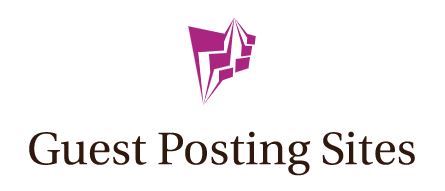Link Building Terms You Should Know About

Are you aspiring to augment your comprehension of link building? If so, it is of utmost importance to acquaint yourself with the pivotal terminologies associated with this crucial facet of SEO. In this discourse, we shall steer you through some indispensable link-building concepts that warrant your awareness.
Primarily, let us commence with hyperlinks and backlinks. Hyperlinks are interactive connections that bridge one webpage to another, facilitating user navigation across distinct websites or pages within the same site. Conversely, backlinks are external connections pointing back to your website from other websites.
They play a momentous role in ameliorating your website’s prominence and search engine rankings. Grasping the distinction between these two link categories is fundamental when formulating a potent link-building strategy.
Let us delve deeper into each term and explore its momentousness in optimising your website’s online performance.
Hyperlinks and Backlinks
Now, we embark on a fascinating odyssey into the realm of hyperlinks and backlinks! Hyperlinks, as interactive links, guide users from one webpage to another within the same website or to an entirely different website. Distinct colours and underlines typically set them apart to distinguish them from regular text. Hyperlinks are of paramount importance for navigation, offering users an easy conduit to access relevant information.
Backlinks are external links that go to your website. They are essential to search engine optimisation (SEO) since they let search engines know that your website is trustworthy and legitimate. Backlinks can help your website appear more prominently in search engine results, which will then lead to more organic visitors.
Anchor Text and Its Importance
Furthermore, apprehending the weight of anchor text and its impact on search engine optimisation holds the key to forging a formidable online presence. Anchor text signifies the clickable words or phrases hyperlinked to another webpage. For search engines, it acts as a beacon, shedding light on the relevancy and content of the linked website.
You may increase your website’s exposure in search engine results pages (SERPs) and improve organic traffic by using descriptive and keyword-rich anchor text. Nevertheless, it is imperative to maintain a natural equilibrium and eschew over-optimization, as search engines may penalise websites resorting to manipulative practices.
Therefore, while incorporating anchor text into your link-building strategy, prioritise relevancy, diversity, and user experience. Opt for anchor texts that precisely depict the linked content while providing value to users by steering them toward pertinent information or resources.
Domain Authority and Its Impact on Link Building
In the quest to optimise your website’s search engine ranking, comprehending domain authority and its impact on your link strategy assumes paramount significance. An indicator of a website’s prospective rank on search engine result pages (SERPs) is domain authority. It considers several elements, such as the backlink profile, general online reputation, and the calibre of the content on a website.
A higher domain authority portends a website’s likelier ascent in search results. Hence, when constructing links for your website, it is imperative to prioritise high-domain-authority websites, as they wield substantial influence in ameliorating your site’s visibility and credibility.
By acquiring backlinks from reputable websites boasting high domain authority, you not only heighten the prospects of garnering more organic traffic but also enhance your own site’s authority in the discerning eyes of search engines like Google.
Nofollow vs. Dofollow Links
Notwithstanding their divergent effects on your website’s visibility and credibility, understanding the disparity between no-follow and do-follow links is integral to optimising your link strategy. Nofollow links are HTML elements that tell search engines not to pass any link authority to the linked page or trail any links to it. They are typically employed for paid advertisements, user-generated content, and untrusted sources.
Conversely, following links afford search engine crawlers the liberty to pursue the link and pass link juice, thereby contributing to the linked page’s authority and potential ranking in search results. While both link types warrant inclusion within a well-rounded link profile, judicious consideration should govern the usage of each type to reap optimal SEO rewards.
Link Relevance and Quality
To genuinely optimise your website’s visibility and credibility, the spotlight must fall on the relevance and quality of your links. Link relevance denotes the proximity between the content of the linked page and your own website’s topic or industry. Prioritising links from websites pertinent to yours assumes paramount significance, as this facilitates search engines in discerning the context and purpose of your site.
Additionally, link quality wields a profound impact on the value of a link. High-quality links emanate from reputable and authoritative websites boasting robust domain authority and a laudable reputation within their respective domains. Such links furnish not only greater SEO value but also help establish trust with both search engines and users. When constructing links, remember to set your sights on relevancy and quality, eschewing a fixation on quantity alone.
Also learn about; Blackhat linkbuilding
Link Building Strategies for Success
Prepare to invigorate your website’s visibility and credibility with effective strategies for triumphant link-building. Constructing high-quality links is pivotal to enhancing your website’s search engine rankings and propelling organic traffic. One strategy entails guest posting, wherein you craft articles for other websites within your niche, incorporating a link back to your site.
This not only augments the tally of backlinks pointing to your site but also enables you to tap into a new audience, establishing yourself as an authority in your industry. Broken link building is another successful technique. This concerns discovering damaged links on other websites and contacting webmasters to offer a replacement link from your website.
This not only aids webmasters in rectifying their broken links but also affords you a valuable backlink. Moreover, fashioning shareable content like infographics or comprehensive guides can allure natural backlinks from other websites, as they perceive your content as invaluable and informative.
Conclusion
In conclusion, link-building constitutes a pivotal facet of any flourishing online marketing strategy. By acquainting yourself with diverse terms and concepts about link building, you can effectively amplify your website’s visibility and credibility. Hyperlinks and backlinks play an integral role in directing traffic to your site and enhancing search engine rankings.
It is crucial to pay attention to anchor text since it helps search engines determine how relevant your material is. Additionally, playing a significant part in establishing the legitimacy of your website is domain authority. Grasping the distinction between nofollow and do follow links empowers you to make astute decisions when it comes to link-building techniques.








